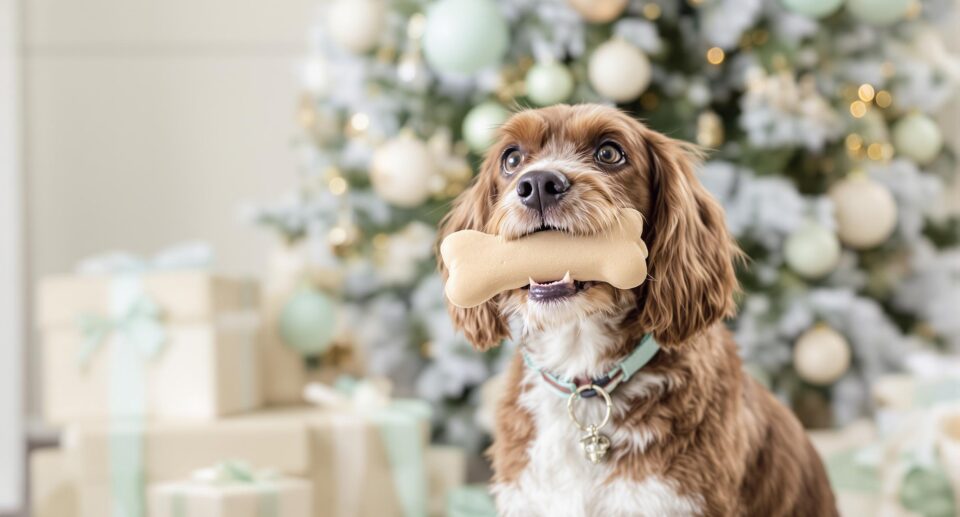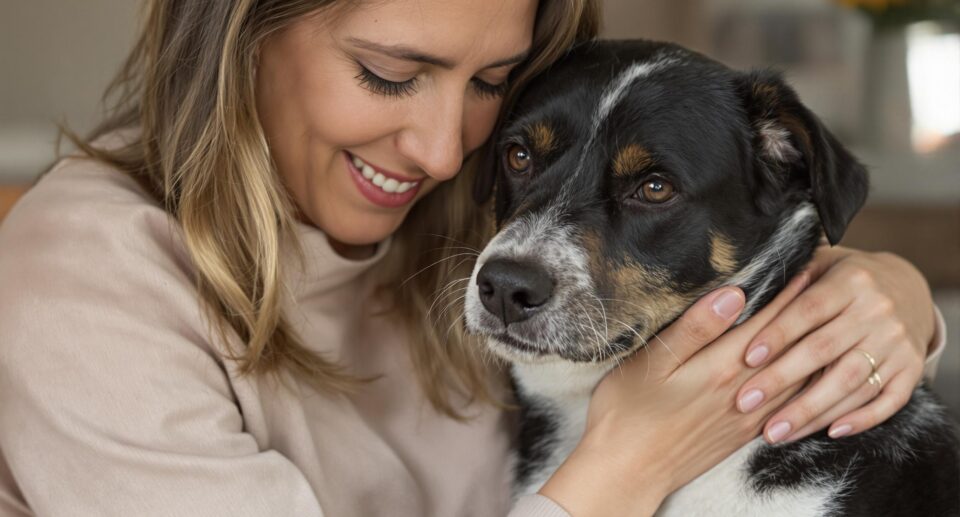Can Dogs Have Christmas Ham?

A huge ham is a great way to feed a table full of guests on Christmas, but what about your four-legged family members? Chances are, your dog would love a bite of the main course. But while dogs love meat and thrive with plenty of animal protein in their diet, allowing them to overindulge in cured Christmas ham can land them in the emergency vet clinic.
What’s In Your Christmas Ham?
The typical dinner ham is a bit different than other types of meat. It’s usually cooked before it’s sold at the grocery store. Ham is injected with a brine solution of salt and sugar, as well as the sodium-based nitrates that make it pink in color. That’s a lot of sodium. While the ingredients used in brines for commercially cured ham are not toxic to dogs, if they consume enough of them, they can cause or exacerbate health issues.
What’s In Your Ham Recipe?
Though your cured ham is fully cooked, you most likely warm it up in your oven for a few hours so it’s hot and juicy by the time you and your guests sit down to dinner. Your recipe may include ingredients that are not dog-friendly.
Your glaze may include dijon mustard, which is made with mustard seeds, a mild toxin for dogs. Mustard seeds are unlikely to cause a medical emergency in dogs, but they can cause gastric upset. Cloves, pitted maraschino cherries, and pineapples are also popular toppings for baked hams. They’re not toxic to dogs, but can cause gastric symptoms in dogs with a sensitive stomach.
What Makes Ham Bad For Dogs?
For most healthy dogs, a bite or two of ham is unlikely to cause any harm, especially if you avoid giving fatty trim. However, it’s common for dog owners to lose track of holiday guests who hand out scraps during dinner. A bite from you, another taste from grandma, and a few forkfuls from each of the nieces and nephews can really add up.
Just one high-fat meal can trigger an acute pancreatitis attack in dogs. This is when the pancreas produces extra enzymes to digest the fat. The increased enzymes can actually start to digest the pancreas itself and surrounding organs, causing painful inflammation and in some cases, permanent damage or even death.
What’s more, the high sodium content in ham can put a strain on your dog’s kidneys. While a healthy dog may pass excess sodium in their urine, a rich meal can trigger a dog with an underlying, possibly not-yet-diagnosed health issue.
If your dog has been diagnosed with chronic heart failure or chronic kidney disease, you will likely already have them on a low sodium diet. But dogs that have not yet been diagnosed may eat table scraps that are high in sodium, which causes the body to retain fluids and puts a strain on the heart and kidneys. Since these chronic conditions are common in senior dogs, it’s best to take extra caution if your dog is older.
Finally, make sure to properly store or throw away all leftovers, including the ham bone. Cooked ham bones are hard enough to splinter your dog’s teeth, and have machine cut edges that can cause gastric perforations and internal bleeding.
When it comes to ham, that “once a year treat,” truly isn’t worth the risks to your dog’s health. Your dog will be just as excited to celebrate the holiday with their favorite dog food and treats.





